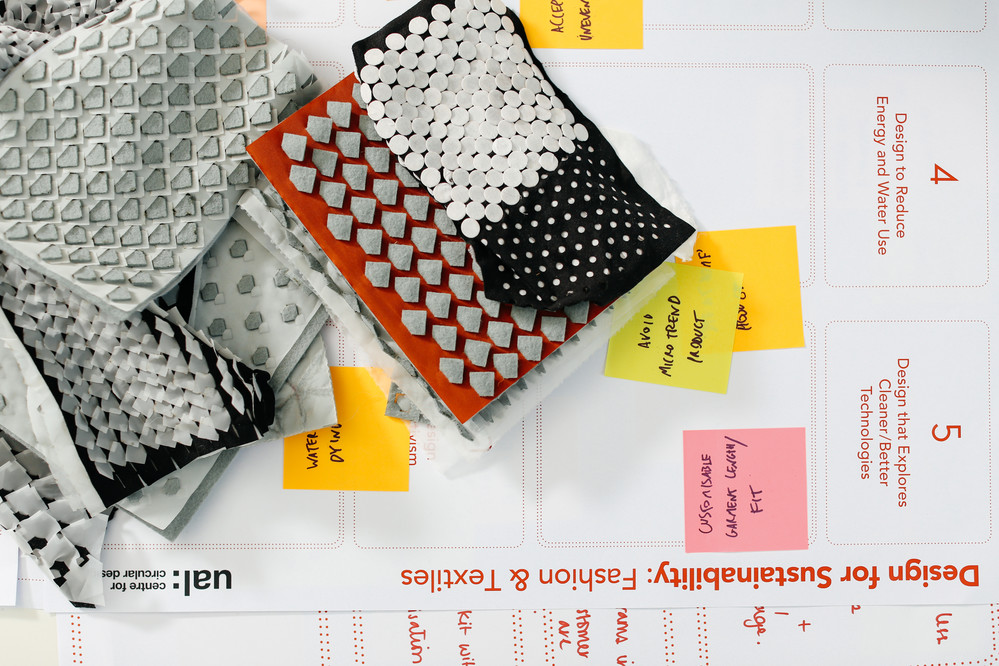UAL’s Centre for Circular Design is part of a new Horizon 2020 research project called HEREWEAR. Together with a consortium of partners, work has begun to produce bio-based circular textiles and to develop an EU market for locally-produced textiles and clothes made from agricultural waste bio-based resources.
The case for bio-based
The textile sector is considered the world’s second largest contributor of microplastics. Today, most new clothing is produced in Asia. It’s manufactured at low cost, under poor labour conditions and with little regard for its environmental impact. Most clothing is made from 2 types of fibre: polyester and cotton. Polyester is oil-based and sourced in the Middle East, and cotton is mostly grown in India, with a big environmental impact due to use of pesticides and high water consumption. During washing and wear, these fabrics release small fibre fragments into the environment - particularly polyester fibres. Known as microplastics, they accumulate in our soil and water, contributing to the widespread pollution of our seas by plastics.
This research will develop sustainable technologies to create bio-based fibres with minimal microfibre release, at semi-industrial scale. The manufacturing will operate through sustainable and circular approaches by connecting regional micro-factories operating using networked production resources. Guidelines will support the design of goods with a focus on local bio-based materials and reuse/recycling. At a later stage, prototypes for streetwear and corporate clothing will be produced, demonstrating the product of this circular concept.
Leading on the project
Leading our contribution to HEREWEAR is Professor Becky Earley, Co-Director of the Centre for Sustainable Fashion based at Chelsea College of Arts, UAL. Her work focuses on the design of a bio-based local circular textiles industry. She and her team will use circular design methods to produce guidelines for manufacture that will be turned into software or a digital resource. The team will define the scope of the project’s assessment activity and manage the material and knowledge flow within the project.
The consortium is strongly SME driven, featuring 8 SMEs and 1 large enterprise, alongside 6 research organisations. It brings together expertise and infrastructure from academia, applied research and industry from 9 different EU countries, complemented with the support of a US SME.
HereWear is an EU project co-funded by the Horizon 2020 programme. The project started on October 1 2020 and will run for 4 years. It is coordinated by Centexbel, the the scientific and technical research centre of the Belgian textile industry. Find out more on the CORDIS website.
Image: Laetitia Forst working on textiles in the studio at Chelsea College of Arts. Photo by Alys Tomlinson.

